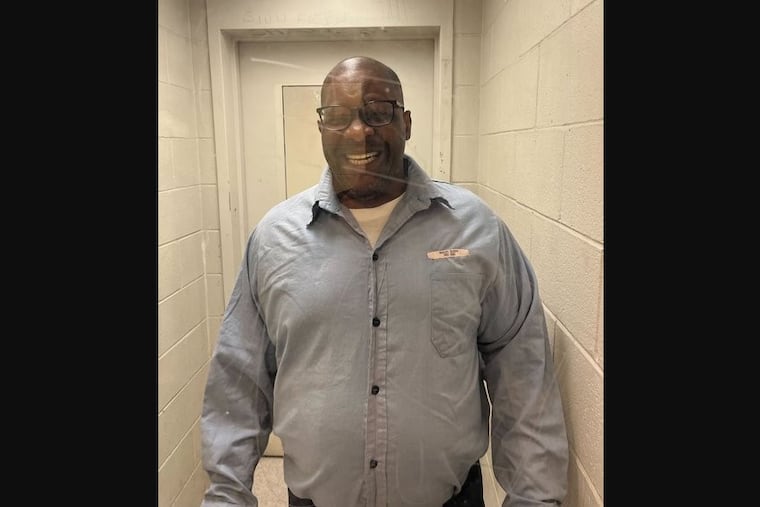61-year-old man is exonerated in 1990 Philadelphia murder
Ronald Johnson, who was behind bars for 34 years, was released late Monday.

A 61-year-old man was exonerated Monday for a 1990 murder when a Philadelphia Common Pleas Court judge vacated his conviction, which his lawyers argued was tainted because police and prosecutors withheld evidence discrediting the only two witnesses in the case.
Ronald Johnson, who was behind bars for 34 years, was released from the State Correctional Institution Phoenix in Montgomery County on Monday night after Judge Scott DiClaudio issued his order earlier in the day and the Philadelphia District Attorney’s Office moved to dismiss all charges, said Johnson’s lawyers at the nonprofit public interest law firm Phillips Black.
“For over three decades, Mr. Johnson and three generations of his family have fought tirelessly to prove his innocence,” the law firm posted on its website.
The Conviction Integrity Unit of the District Attorney’s Office said in a 29-page filing in November that the evidence in the case “undermines confidence in the outcome of Johnson’s trial.”
Johnson was convicted of the 1990 murder of Joseph Goldsby.
Johnson’s lawyers said there were no fingerprints, DNA, or other forensic evidence to support his conviction.
“During the investigation, the witnesses told police that Mr. Johnson was not present at the crime and identified a different perpetrator,” the law firm said. “At trial, however, police suppressed this critical evidence, and then lied about it on the stand.”
Stephen Lazar, a legal apprentice on Johnson’s legal team and a formerly incarcerated person who also was exonerated, said in a statement that Johnson and his family wept as the judge ordered his release.
His “first plan as a free man” is to visit the burial site of his mother, who “always believed” in his innocence, Lazar said.
On March 1, 1990, Goldsby was fatally shot in his car on the 2100 block of Westmoreland Street in the Tioga section of North Philadelphia. Investigators said Goldsby was dealing drugs when two men approached his car. One entered the car while the other waited on the sidewalk. During a struggle inside the vehicle, shots were fired and the car rolled into a pole.
At Johnson’s trial, prosecutors argued that he was standing next to the car and aimed a gun inside, but that it misfired. Prosecutors relied on the eyewitness testimony of two men, ”both of whom changed their stories considerably over the course of many police interviews,” Johnson’s lawyer argued in a filing last year.
The two men at first told police that Johnson was not at the shooting. They later identified other potential suspects, then stated that Johnson could have been either the man in the car or the man on the sidewalk. Finally, the men’s statements agreed on Johnson’s involvement in Goldsby’s slaying.
The men’s accounts of what happened “were the entirety of the commonwealth’s case against Mr. Johnson, resulting in a conviction and sentence of life without the possibility of parole,” Johnson’s lawyers said.